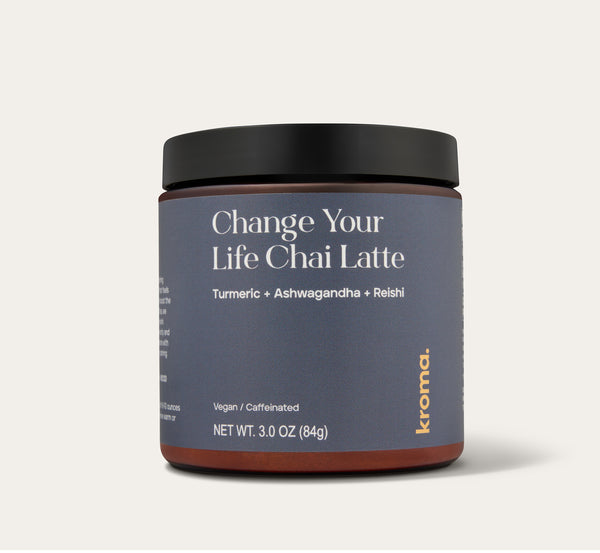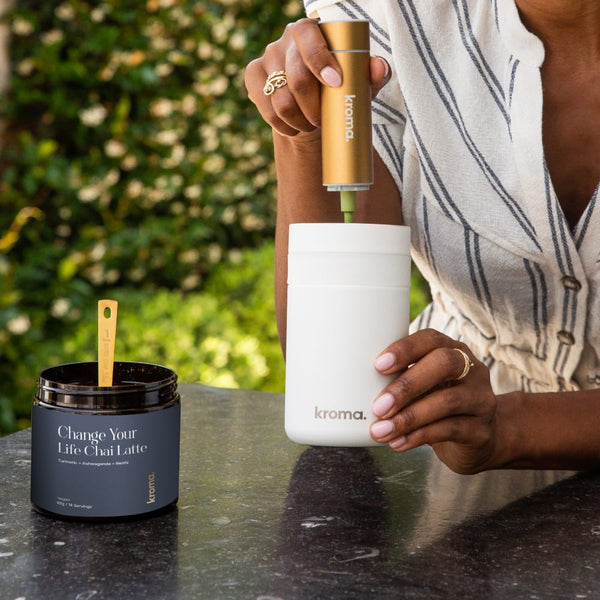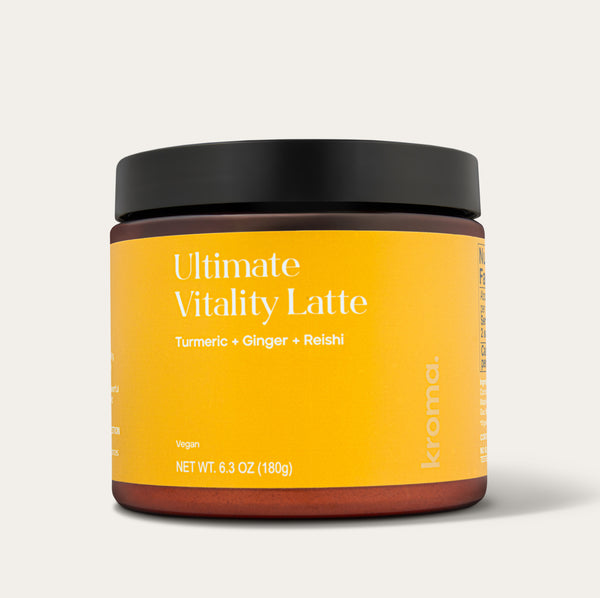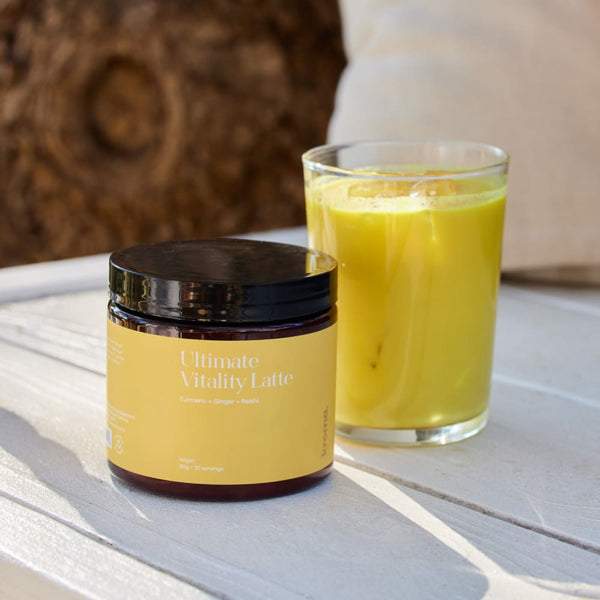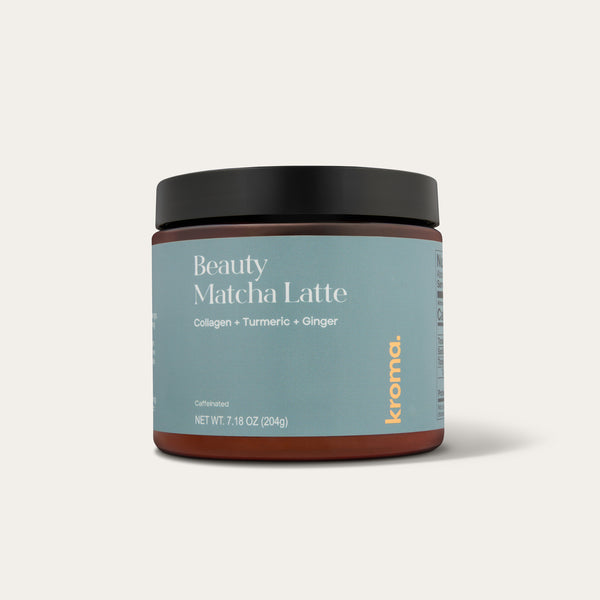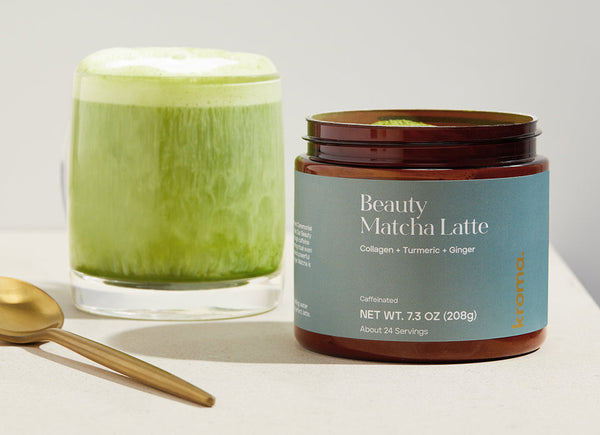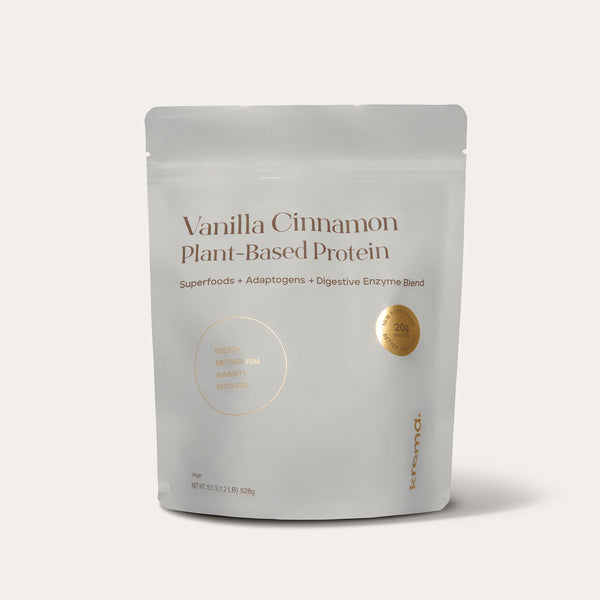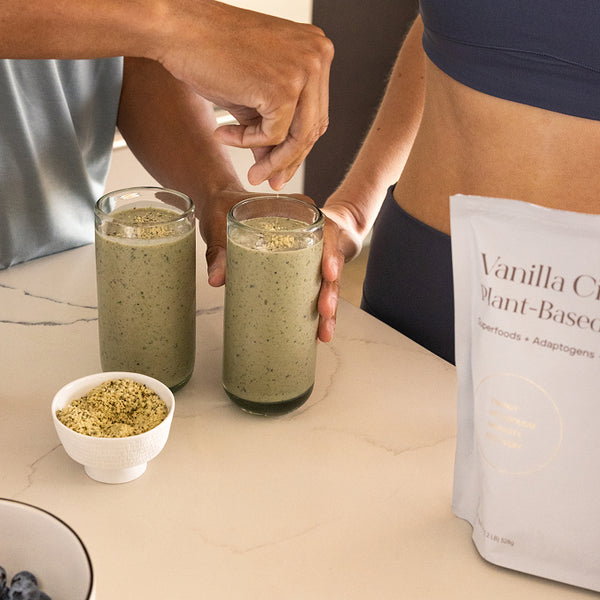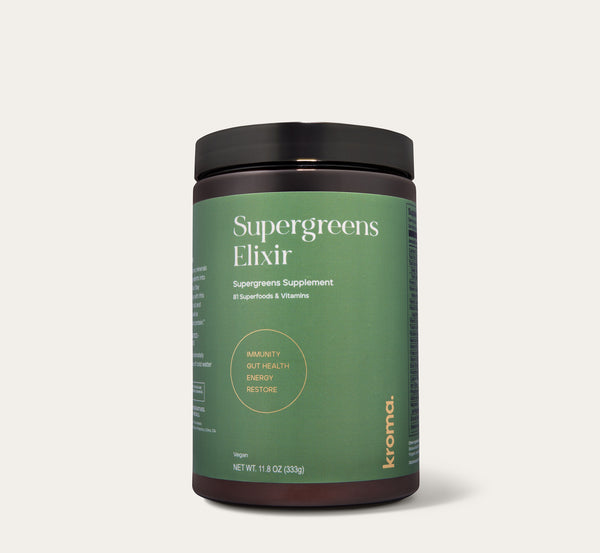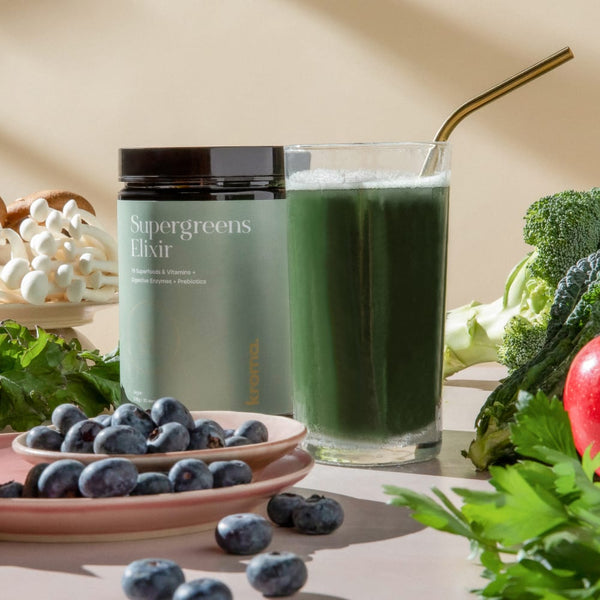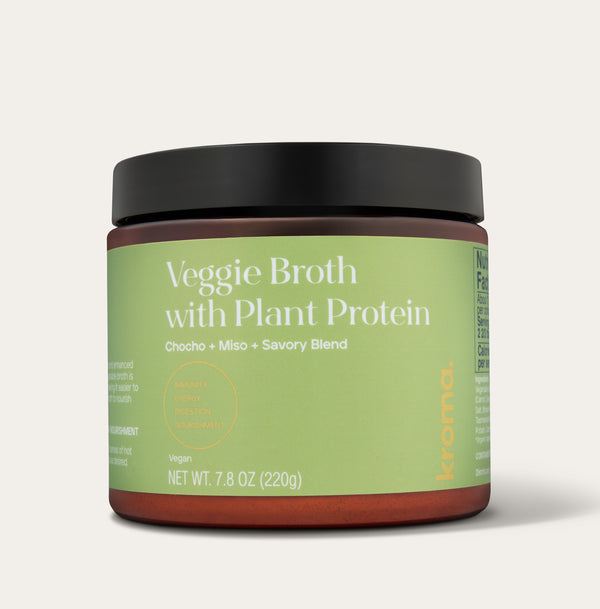You may have heard about the increasingly popular properties of adaptogens and nootropics. Adaptogens are properties found in plants and mushrooms that can help to relieve the impact of stress on the body. Alternatively, nootropics (also known as “smart drugs”) are a class of natural and synthetic supplements that can support cognitive functioning.
Unlike adaptogens, nootropics don’t specifically target stressors but more broadly support cognitive functioning as it relates to performance. Both can be taken as supplements in tincture, powdered, or capsule form and have become increasingly popular among people looking to boost performance and reduce stress naturally.
Keep reading for a comprehensive overview of the differences between adaptogens and nootropics and how you might incorporate them into your life to support your health and wellness.
What Are Adaptogens?
Adaptogens are active ingredients found in specific plants and mushrooms that can ease stress levels and help mitigate fatigue. Most commonly, adaptogens are consumed directly by the plant or mushroom or incorporated into one’s diet through a tincture.
While still sparsely researched, these ingredients have been shown to support a calmer, more clarified mental state and overall cognitive function.
What Do Adaptogens Do?
Adaptogens interact with your body on a molecular level by supporting the functions of various brain parts, namely the pituitary, hypothalamic, and adrenal glands. So how, exactly, do adaptogens work?
As the body experiences stressors, it releases chemicals like adrenaline to support its functions. The body responds to stress by giving itself chemicals to keep it alert, functioning, and boosted.
However, as the body continues to experience stressors, it begins to experience fatigue. For example, if the stressor is exercising, the body can only exercise for so long before growing tired.
This is where adaptogens come in: they interrupt that phase between adrenaline and exhaustion by delaying fatigue. Not only do adaptogens contain anti-fatigue properties and cognitive support, but they can also help with stress and anxiety relief. This delay of fatigue and broad cognitive support is why adaptogens are so popular with athletes, busy professionals, and those seeking to reduce stress in their lives.
Types of Adaptogens

There are many examples of adaptogens nowadays; it’s not as much about finding one as it is about selecting one that best fits your lifestyle and wellness goals. Some popular adaptogens include American ginseng, ashwagandha, holy basil, maca, reishi mushrooms, and Siberian ginseng.
American Ginseng
Again, since adaptogens can be found in plants and mushrooms, there are likely more plants with adaptogenic qualities that have yet to be discovered and properly researched. However, ginseng is one of the most well-researched adaptogenic plants. It can help combat stress, boost your nervous system, and offer immune and anti-inflammatory support.
Reishi, Cordyceps, and Lion’s Mane Mushrooms

Reishi mushrooms are another well-researched adaptogen. Cordyceps and lion's mane are two other mushrooms that exhibit adaptogenic properties. These powerful mushrooms are all considered safe for use and have been shown to reduce stress and tension during athletic performance.
Our Change Your Life Chai Latte is filled with adaptogenic ingredients. This chai is unlike any you've had before, with reishi and Cordyceps mushrooms to ashwagandha root extract. Not only is this warm, spiced beverage working hard to wake you up and keep you level-headed, but it is also supporting your immunity and wellness with the inclusion of turmeric.
There’s nothing worse than waking up in the morning, eager for the first sip of coffee or tea, only to find yourself anxious after a few minutes. Caffeine can be difficult to mitigate, especially for people who struggle with stress and tension. And yet, our Chai latte brings you enough caffeine to keep you alert, but with the added adaptogenic properties, it provides you with calm and sustainable energy.
Benefits of Taking Adaptogens
Adaptogens offer numerous benefits, including stress relief, enhanced cognitive function, and delayed fatigue. They can help create a more balanced and resilient response to stress, making them a popular choice for those seeking natural ways to support their mental and physical well-being.
Can You Drink Adaptogens?

Yes, you can drink adaptogens. Many adaptogens are available in powdered or liquid forms, making incorporating them into beverages like teas, smoothies, and lattes easy. Kroma Wellness offers a variety of delicious and beneficial adaptogenic drinks, including our Change Your Life Chai Latte and Beauty Matcha Latte.
What Are Nootropics?
Broadly, nootropics are a grouping of supplements that support cognitive function. Commonly named “smart drugs,” nootropics are geared towards supporting performance — cognitive or athletic — in healthy people.
How Do Nootropics Work?
Nootropics support the body’s performance by affecting the brain through several neural pathways. Specifically targeting the dopaminergic pathway, nootropics can support memory, attentiveness, energy levels, and motivation.
The two kinds of nootropics — synthetic and natural — work similarly. The only significant difference between them is that one naturally occurs in plants, and the other has been synthetically crafted in a lab.
Types of Nootropics

There are lots of different nootropics, but here are some of the most popular ones:
Caffeine
Caffeine is likely the most well-known nootropic (and you can find it in our Change Your Life Chai Latte (wink wink), though many people don’t associate that morning pick-me-up with a psychoactive interaction.
Ginkgo Biloba
Ginkgo biloba is a natural nootropic known for enhancing cognitive function, improving memory, and increasing blood flow to the brain.
Creatine
Creatine is a supplement commonly used by athletes to improve physical performance, but it also has cognitive benefits, such as enhancing memory and mental clarity.
Benefits of Taking Nootropics
Nootropics can support improved memory, focus, and mental clarity. They can also boost energy levels and motivation, making them a valuable addition to your wellness routine if you are looking to enhance cognitive performance.
Which Is Better: Adaptogens or Nootropics?

Here’s the thing: it’s not really about whether adaptogens are “better” than nootropics. It’s about figuring out your wellness objectives and which plant, mushroom, or supplement in each category might best support you in reaching those goals.
Take caffeine, for example. This morning ritual-maker is considered a nootropic, as the interaction between caffeine and your brain is actually a psychoactive relationship. If you are looking for a boost in your energy and alertness, drinking a caffeinated beverage might make sense.
If, however, you are trying to manage anxiety and stress more effectively, you might not want to incorporate more caffeine into your day. Instead, selecting something with adaptogenic ingredients, like our Ultimate Vitality Latte, might make more sense. Particularly if you want to reduce the impact of stress on your mind and body, reaching for something that will support your inner calm is a must.
Understanding the difference between adaptogens and nootropics can help you make informed choices about what to include in your wellness routine. For those who are curious about what are adaptogens and nootropics, it's essential to recognize that adaptogens and nootropics can offer a balanced approach, combining the benefits of stress relief and cognitive enhancement.
Are Adaptogens Really Effective?
Though adaptogens still need to be researched more on the potential impacts they might offer, they are highly effective in supporting a calmer sense of well-being. Additionally, adaptogens shouldn’t be considered a stress-relieving catch-all for supporting mental health and well-being. You should prioritize your health, diet, and sleep habits and then incorporate adaptogens to support your lifestyle.
And yet, adaptogens have been shown to support the body in several critical ways. While each adaptogen contains a different property that can best support you, as a class of functional supplements, they offer an all-natural way to support your mind and body. So, what are adaptogens and nootropics? Essentially, adaptogens and nootropics are substances that help the body resist stressors of all kinds, whether physical, chemical, or biological.
Should Adaptogens and Nootropics Be Used Together?
Interestingly enough, adaptogens and nootropics can be used together to achieve combined — or synergistic — results.
When considering what are adaptogens and nootropics, it’s important to note that each serves a unique function, yet they can complement each other well.
Adaptogens and nootropics provide a balanced approach to enhancing both mental and physical well-being, leveraging the benefits of each to support overall health.
What Kinds of Benefits Can I Expect?

The combined benefits of adaptogens and nootropics can yield an effect that is akin to a relaxed state of being alert. Though more research is necessary to develop a more comprehensive picture of what adaptogens and nootropics are and how they will work together, they are safe to combine.
When using a substance that creates alertness, it’s possible that that could additionally create anxiety. However, with a calming adaptogen, your body can receive both energizing and soothing effects.
How Should I Use Adaptogens and Nootropics for Best Results?
You can use adaptogens and nootropics in a combined supplement to receive dual properties, or you can incorporate adaptogens and nootropics throughout your daily routine to receive separate yet complementary results.
One of the more interesting combinations of adaptogens and nootropics is the pairing of caffeine and the adaptogen L-theanine. With caffeine being a brain-boosting nootropic and L-theanine being a calming adaptogen, you might expect their effects to cancel each other out. On the contrary, one study found that this combination proved formidable and offered support for both alertness and memory in study participants.
Our Beauty Matcha Latte contains L-theanine alongside plenty of antioxidants, so you can start your day right with a delicious but beneficial beverage.
The Bottom Line
Incorporating adaptogens and nootropics into your wellness routine might be the next move if you are looking to support your mind and body naturally. Incorporating a nootropic supplement into your daily routine might be beneficial if you’re looking to boost your alertness, enhance productivity, and energize yourself.
Alternatively, if you are looking to reduce stress and create a more calm mental space for yourself, bringing in adaptogens to your morning routine can be a natural and high-impact way to set a relaxed tone for the day. Including adaptogens and nootropics in your daily routine can effectively bring energy and calming effects into your life.
Whether you’re looking to improve athletic performance, transform the way your body responds to stress, or commit to enhancing productivity, bring these brain-boosting supplements into your life. Whether you choose natural adaptogens or a nootropic, your body and brain will be excited as you enhance your wellness.
FAQs About Adaptogens and Nootropics
What is the most powerful Adaptogen?
Ashwagandha is often considered one of the most powerful adaptogens due to its extensive benefits, including stress reduction, improved sleep, and enhanced cognitive function.
Who should avoid adaptogens?
Individuals who are pregnant, breastfeeding, or have specific medical conditions should consult a healthcare professional before taking adaptogens to ensure they are safe to use.
What are the negatives of adaptogens?
While adaptogens are generally considered safe, some individuals may experience side effects such as digestive upset, allergic reactions, or interactions with medications. It's important to start with a low dose and monitor your body's response.






